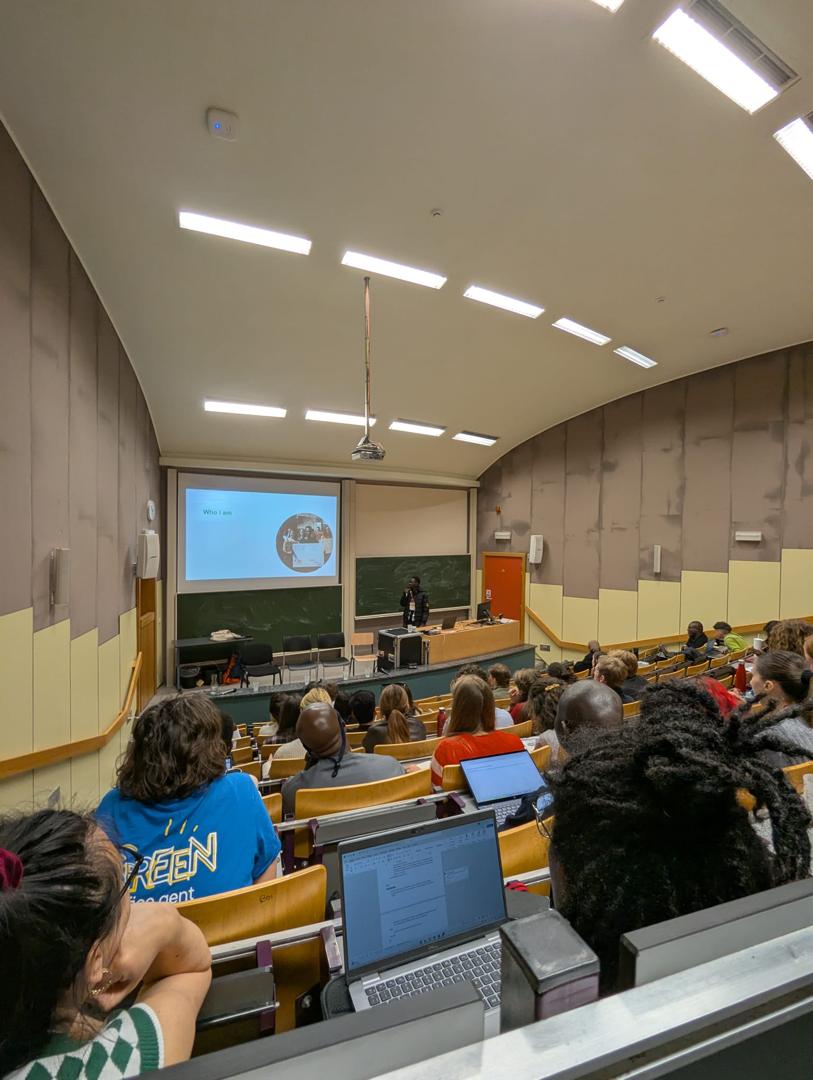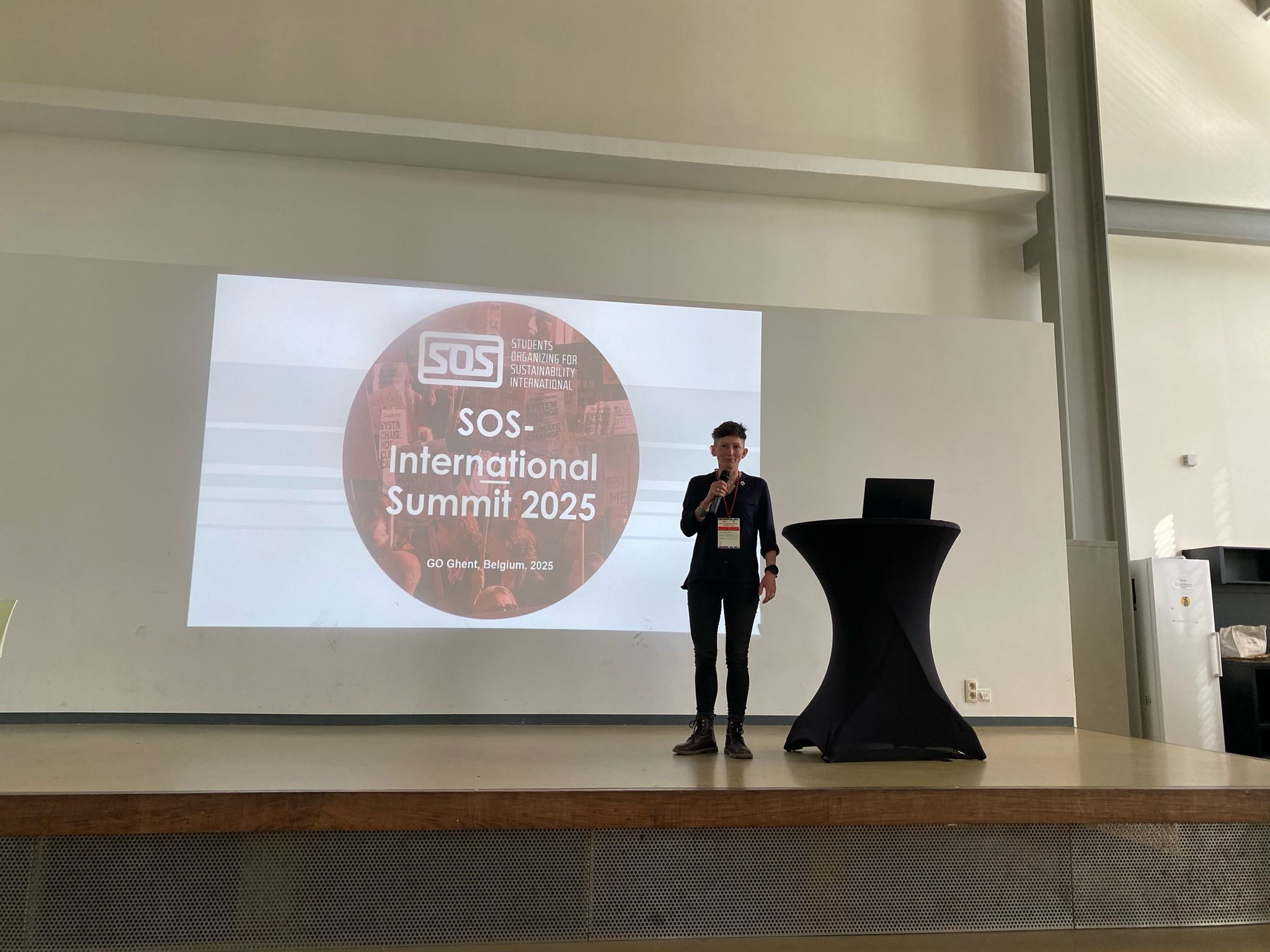The Students Organizing for Sustainability (SOS) International Summit 2025, hosted in Ghent, Belgium, marked a critical moment for the global student movement. Under the theme "Mobilizing Student Leadership for Environmental Justice," students, educators, and leaders from around the world convened not just to discuss challenges, but to outline a decisive, action-oriented path toward a sustainable and equitable future.
This post-summit compendium of presentations highlights a commitment to moving beyond traditional sustainability and embracing the urgency of Environmental Justice .
As SOS International President Peter Kwasi Kodjie noted, the goal is to "connect, strengthen and scale impactful initiatives, so together we can go further, faster".

The summit drove home a crucial message: environmental action without social justice is insufficient.
- Defining Environmental Justice: Environmental Justice was defined as going beyond sustainability to focus on fairness. It is about ensuring "no community bears disproportionate harm from climate change" and amplifying the voices of historically marginalized communities.
- Global Realities: Sessions highlighted the disproportionate impacts felt by the Global South, juxtaposing the importance of the Congo and Amazon Basins as the two largest terrestrial carbon sinks with the vulnerability of regions like East Africa and Latin America to climate disasters. Victor Nascimento’s presentation stressed the relevance of COP 30 in Brazil for the emancipation of historically marginalized voices in climate governance.
A central focus was on transforming higher education institutions (HEIs) into engines for climate justice, acknowledging that while only 6% of people attend university, 80% of global leaders hold a HEI degree.
- Student Demand and Co-Creation: Students are demanding change. Data shows that 73% of students agree that all courses should actively incorporate and promote sustainability. Sonya Peres’s session championed co-creating sustainability by integrating students as "genuine and active partners in education," moving beyond tokenism to ensure their lived experience and knowledge are valued.
- Education for Sustainable Development (ESD): ESD is necessary to equip graduates with the knowledge and skills needed to contribute positively to holistic sustainability and climate justice. SOS’s Responsible Futures program was showcased as a framework for embedding sustainability across the formal and informal curriculum, audited by students themselves.
The summit provided concrete models for translating activism into lasting institutional and political change.
- Leveraging National Frameworks: Youth must shift from simply generating momentum to building structural power. This means engaging directly with national climate plans and laws, demanding seats at the decision-making table, and using legal tools to force government action, as seen in successful youth-led lawsuits globally.
- Industry-Academia Collaboration: To foster climate action, universities must build long-term partnerships with industry. Recommendations include piloting Green Skills Centers and co-designing curricula to address skills gaps and localize climate solutions.
- Addressing Eco-Emotions: Recognizing the mental health toll of the climate crisis, a session on "Eco-emotions and how to deal with them" offered crucial insights into recognizing, processing, and communicating boundaries while engaging in high-stakes activism.
A Call to Action: The Fight is Now
The final message from the summit was unequivocal: "Environmental justice is achievable, necessary, and now!".
The SOS International Summit 2025 concluded with a unified commitment to:
- Build networks that sustain momentum.
- Share evidence-based knowledge.
- Act decisively for environmental justice.
Join the Movement: Students Organizing for Sustainability is an international network that supports student-led organizations to lead on sustainability and social justice. Membership is free; we want your action.





